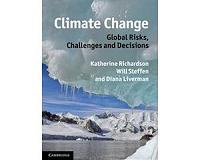| . |  |
. |
Nuuk, Greenland (AFP) May 12, 2011 Top diplomats from eight Arctic countries met in Greenland's tiny capital Thursday to set down rules for opening the vast region to fishing, tourism, oil and mineral exploration as global warming melts the ice. "The opportunities for economic development in the Arctic must be weighed against the need to protect its environment and ecosystems," US Secretary of State Hillary Clinton told her counterparts from the Arctic Council. "And governments will not always see eye to eye on how to achieve this balance," the chief US diplomat told Russian Foreign Minister Sergei Lavrov and their counterparts from Canada, Denmark, Finland, Iceland, Norway and Sweden. "That's why this council is so important. We are committed to it as the region's pre-eminent intergovernmental body, where we can solve shared problems and pursue shared opportunities," she told the seven fellow council members. Clinton said the United States "support its authority and its vision, and we are committed to working with all member nations" as well as others who work with the council, including non-government organisations. Speaking alongside her Danish counterpart Lene Espersen, Clinton told reporters earlier the challenges in the region were not just environmental. "There are other issues at stake. The melting of sea ice, for example, will result in more shipping, fishing and tourism and the possibility to develop newly accessible oil and gas reserves," she said. "We seek to pursue these opportunities in a smart, sustainable way that preserves the Arctic environment and ecosystem," she added. She warned pollutants such as black carbon, methane and hydro fluorocarbons, so-called short lived climate forcers, were a problem that needed more attention as they contribute to the faster-than-average rate of warming in the Arctic. "While most of the world's black carbon is created elsewhere, there are things we can do in the Arctic to mitigate its warming effects," Clinton said. "The United States has already committed $5 million toward an Arctic Black Carbon Initiative to address Arctic emissions," she said. "And we are proposing a range of responses to black carbon and other short-lived climate forcers -- from retrofitting diesel generators to ending the practice of fertilizing fields by burning crops," said the secretary. "These are recommendations for the Council, and it is our hope that we will act on them quickly," she said. Sweden, which took over the two-year rotating presidency of the council at the meeting, also preached sustainable development for the region. The eight top diplomats and government representatives signed an Arctic Search and Rescue Agreement, which the US State Department said is the first binding international agreement among the eight states of the Arctic Council, which was founded in 1996. Vladimir Titov, Russia's deputy foreign minister, told the RIA Novosti news agency the agreement "will be the first pan-Arctic document in history". He added the document was developed under the co-chairmanship of Russia and the United States and "is aimed at improving the timeliness and effectiveness of delivering aid in extreme situations". Oil companies are meanwhile rushing to explore the region for new supplies as worldwide demand surges and as the ice melts in the region, making exploration easier. "As new commercial opportunities open in the Arctic, the United States will help lead a new Task Force to address potential oil spills in the region," Clinton told her counterparts. "As we learned so tragically in the Gulf of Mexico, it's vital we have mechanisms in place for disasters of this kind," she said, referring to the explosion last year of the Deepwater Horizon oil rig operated by BP. One-fifth of the world's undiscovered but technically recoverable reserves of hydrocarbons are located north of the Arctic Circle, according to the US Geological Survey (USGS). The region accounts for about 13 percent of the world's undiscovered oil and 30 percent of the undiscovered natural gas, USGS data shows. About 84 percent of the resources are offshore. Exploration off Greenland has yet to produce any commercially exploitable reserves, but that did not stop British firm Cairn from boosting its investment there by one billion dollars on the back of "encouraging" first results. Meanwhile, Greenpeace, which quoted leaked diplomatic cables, said Thursday that a rush for the Arctic's resources is sparking military tension in the region. "New revelations by... WikiLeaks show how the scramble for resources in the Arctic is sparking military tension in the region -- with NATO sources worried about the potential for armed conflict between the alliance and Russia," it said.
Share This Article With Planet Earth
Related Links Beyond the Ice Age
 Change is the order of the day in the Arctic
Change is the order of the day in the ArcticCopenhagen, Denmark (SPX) May 12, 2011 Climate change in the Arctic is occurring at a faster and more drastic rate than previously assumed, according to experts attending the AMAP conference in Copenhagen. The latest scientific data show that developments in the Arctic's climate are closely related to developments in the rest of the world. "The order of the day in the Arctic right now is change. But we shouldn't expect that tho ... read more |
|
| The content herein, unless otherwise known to be public domain, are Copyright 1995-2010 - SpaceDaily. AFP and UPI Wire Stories are copyright Agence France-Presse and United Press International. ESA Portal Reports are copyright European Space Agency. All NASA sourced material is public domain. Additional copyrights may apply in whole or part to other bona fide parties. Advertising does not imply endorsement,agreement or approval of any opinions, statements or information provided by SpaceDaily on any Web page published or hosted by SpaceDaily. Privacy Statement |